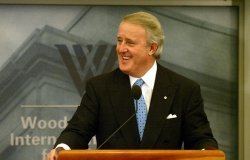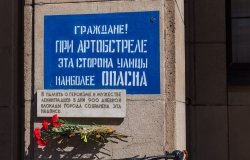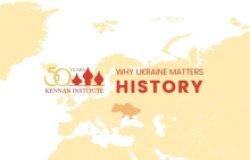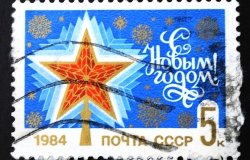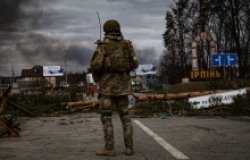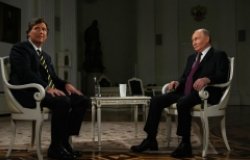The Worst-Kept Secret: Israel's Bargain With the Bomb
Avner Cohen, Senior Fellow, James Martin Center for Nonproliferation Studies; Morton Halperin, Senior Adviser, Open Society Institute, Samuel W. Lewis, former U.S. Ambassador to Israel; Bruce Riedel, Former Senior Director, National Security Council, Near East Affairs
Overview
Former Wilson Center scholar and James Martin Center for Nonproliferation Studies senior fellow Avner Cohen will discuss his latest book, The Worst-Kept Secret: Israel's Bargain with the Bomb. Former NSC staffer and advisor to Presidents Johnson, Nixon and Clinton Morton Halperin, former US Ambassador to Israel Samuel W. Lewis, and former National Security Council Senior Director for Near East Affairs Bruce Riedel, will join Cohen on the panel to provide comments.
Israel has created, with the tacit support of the United States, a special "bargain" with the bomb. Israel is the only nuclear-armed state that refuses to acknowledge its possession of the bomb, even though its existence is common knowledge throughout the world.
By adhering to the bargain, which was born in a secret deal between Richard Nixon and Golda Meir, Israel has created a code of nuclear conduct that encompasses both governmental policy and societal behavior. While the bargain has deemphasized the salience of nuclear weapons, Cohen suggests that it is incompatible with the norms and values of a liberal democracy. The intense secrecy surrounding Israel's nuclear program, according to Cohen, violates the public right to know, undermines the norm of public accountability and oversight and is incompatible with emerging international nuclear norms.
Avner Cohen is a former Wilson Center scholar and a senior fellow at the Washington Office of the James Martin Center for Nonproliferation Studies, Monterey Institute of International Studies. He has published on subjects as varied as nuclear proliferation and nuclear history, political theory, skepticism, and Israeli history. He is the author of Israel and the Bomb and the coeditor of Nuclear Weapons and the Future of Humanity and The Institution of Philosophy. Cohen is a two-time winner of the MacArthur Foundation research and writing awards, was a Senior Fellow at the United States Institute of Peace (USIP), and was co-director of the Project on Nuclear Arms Control in the Middle East at the Security Studies Program at MIT. Cohen holds a B.A. in Philosophy and History from Tel Aviv University, a M.A. in Philosophy from York University, and a Ph.D. from the Committee on History of Culture of the University of Chicago.
Morton Halperin is a senior advisor to the Open Society Institute and has held senior positions in the Clinton, Nixon and Johnson administrations. In the Clinton administration, Halperin was director of the Policy Planning Staff at the Department of State, special assistant to the president and senior director for democracy at the National Security Council. During the first nine months of the Nixon administration, Halperin was a senior staff member of the National Security Council staff with responsibility for National Security Planning. Under President Johnson, Halperin served as deputy assistant secretary of defense (International Security Affairs), responsible for political-military planning and arms control. In addition to his distinguished government service, Halperin has taught at Harvard University, directed the Center for National Security Studies for over 15 years and authored, co-authored or edited over a dozen books.
Samuel W. Lewis is a former U.S. ambassador to Israel and a career diplomat having retired from government service as director of the State Department's policy planning staff for the Clinton administration. Lewis had served more than five years as president and CEO of the United States Institute of Peace and was counselor at the Washington Institute for Near East Policy. As ambassador to Israel, Lewis participated in the 1978 Camp David conference and in subsequent negotiations which produced the historic peace treaty between Israel and Egypt. He currently serves as senior policy advisor for the Israel Policy Forum. Lewis has lectured widely and been a frequent commentator on Middle East affairs, U.S.-Israeli relations, international conflict resolution and the role of the United Nations in peacemaking and peacekeeping.
Bruce Riedel is a senior fellow in foreign policy at the Saban Center for Middle East Policy at the Brookings Institution. A former CIA officer, Bruce Riedel focuses on political transition, terrorism and conflict resolution. He has been a senior advisor to U.S. presidents George H.W. Bush and Bill Clinton on Middle East and South Asian issues. Most recently, at the request of President Barack Obama he chaired an interagency review of policy toward Afghanistan and Pakistan for the White House that was completed in March 2009.
Hosted By

Nuclear Proliferation International History Project
The Nuclear Proliferation International History Project is a global network of individuals and institutions engaged in the study of international nuclear history through archival documents, oral history interviews, and other empirical sources. At the Wilson Center, it is part of the Wilson Center's History and Public Policy Program. Read more

Nuclear Proliferation International History Project
The Nuclear Proliferation International History Project is a global network of individuals and institutions engaged in the study of international nuclear history through archival documents, oral history interviews, and other empirical sources. At the Wilson Center, it is part of the Wilson Center's History and Public Policy Program. Read more

Cold War International History Project
The Cold War International History Project supports the full and prompt release of historical materials by governments on all sides of the Cold War. Through an award winning Digital Archive, the Project allows scholars, journalists, students, and the interested public to reassess the Cold War and its many contemporary legacies. It is part of the Wilson Center's History and Public Policy Program. Read more

Middle East Program
The Wilson Center’s Middle East Program serves as a crucial resource for the policymaking community and beyond, providing analyses and research that helps inform US foreign policymaking, stimulates public debate, and expands knowledge about issues in the wider Middle East and North Africa (MENA) region. Read more
Thank you for your interest in this event. Please send any feedback or questions to our Events staff.



